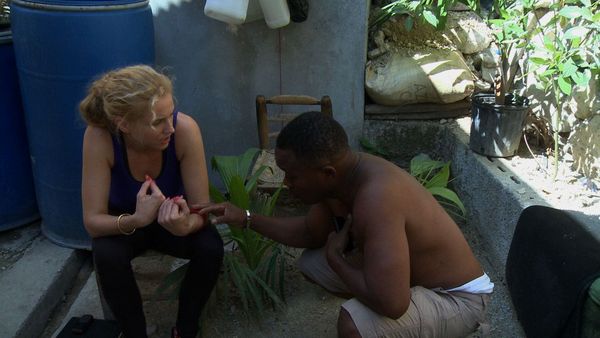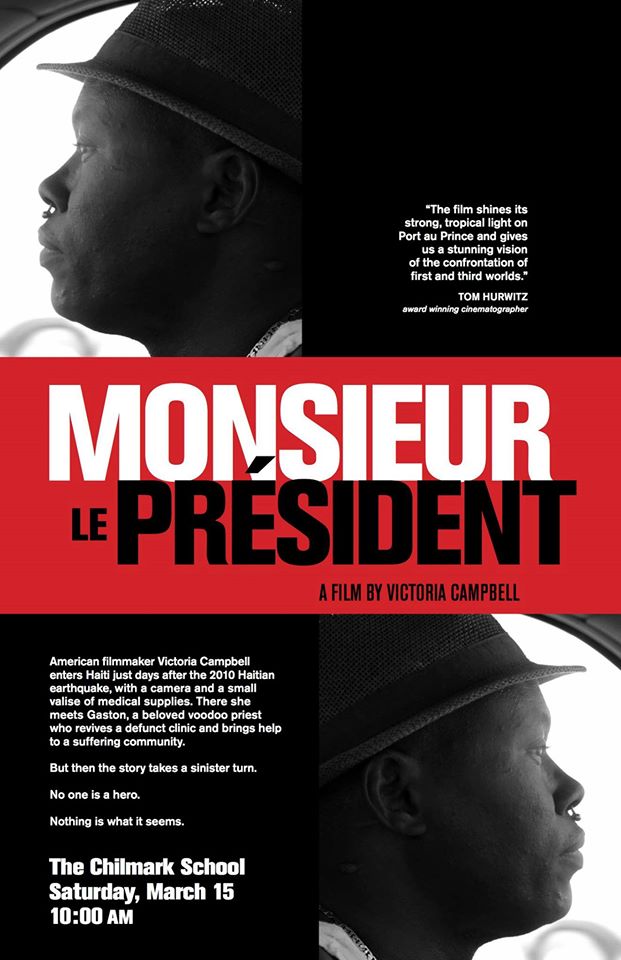Eye For Film >> Movies >> Monsieur Le Président (2014) Film Review
Monsieur Le Président
Reviewed by: Jennie Kermode

After the devastating earthquake of 2010, Haiti quickly became a prime destination for rescue workers, aid workers and journalists. Most stayed only for a short time, but as long term aid projects were set in motion, some filmmakers returned to look at how the island was recovering. Victoria Campbell was a bit of both, initially passing herself off as a nun in order to go there and help, but finding herself recording the stories she saw around her. Out of those stories, one in particular emerged: that of Gaston Jean Edy.
In dealing with the disaster, Gaston proved to be the sort of man everyone likes to imagine they could be. Whilst others gave in to despair or rested all their hopes on divine intervention, he organised teams to clear up rubble, helped establish a free clinic and gave people around him the drive they needed to make a go of life despite horrifying personal losses. Following him, Campbell acknowledges, she became quite entranced by his ability to bring about change. Even after the voodoo ceremony where he made some of his views about her clear, she continued to admire him. But as the years went by, Gaston slowly changed, building up to a sudden decision that left Campbell and his Haitian followers bewildered.

This is one of those films that might be said to work despite its director. It's never clear how aware she is of what's really going on, but she certainly realises she's made mistakes, and her willingness to put so much of this on screen is commendable. The story as presented is that of an apparent hero who turned out to be a bad guy, but to interpret it this way is quite simplistic. There's also a massive cultural and psychological disconnect brought about not so much by the Campbell's geographical origins but by her lack of personal experience of living on the breadline or dedicating herself to others to the degree that Gaston undoubtedly does in the first part of the film. For all that she praises him, she never seems to understand the pressure she's under, or notice that she is the one who decided he was infallible, projecting an archetype onto a damaged human being. This is not to say that he is not tremendously flawed - but that, of course, is at the heart of what makes the film interesting.
It's a shame that this film's promotional material makes much of the idea that there are no heroes. Watching the nurses who work n the clinic, one sees many examples of a quieter sort of heroism, every bit as important. If Gaston is, initially, a good man, he is also a charismatic man, and Campbell seems inclined to confuse the two. Her journey, however, is an intriguing one, and it also opens a doorway into Haiti, letting viewers see what is being done to restore it and, perhaps, helping them think critically about the best ways to donate in support of these efforts. Gaston gets one important point through clearly, which is that Haitian people want to be able to take care of themselves. It is perhaps not his fault if those who have never known such desperation fail to see where such sentiments may, in some cases, lead.
Reviewed on: 15 Nov 2014
















